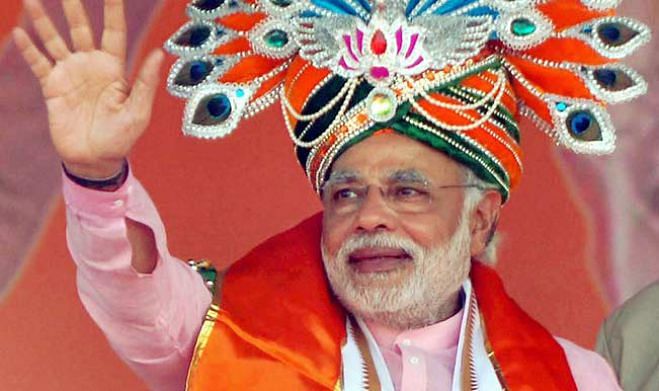Modi's Republic
Modi's Republic

It is always a pleasure to listen to Dr. Raja Mohan's talk. It is not only interesting it is so convincing that you have to agree with almost all of what he has to say. And I could not take issue with what he had to say yesterday in his talk entitled, “Political Transition in India: What it means for South Asia and beyond.”
However, I have of course some comments on his very enlightening expose which covered the changes in the political continuum of India since 1947 and the resultant impact on the socio-political and foreign relations spheres. And I will deal with only a few.
India appears to have gone through two phases of change straddling nearly four decades up to 1989, and it is now in the cusp of the third phase; and these phases Raja Mohan very suitably describes as 'Republics.' The current phase being the 'Third Republic' or perhaps can be most appropriately called 'Modi's Republic.” Next five years in India will be about Modi and by Modi. It seems that not only has the BJP as a party been subsumed by the man's name perhaps India too is experiencing a similar phenomenon.
Perhaps the word transition does not truly explain the degree of the changes that the Modi win has wrought on India. It was very nearly a small scale tsunami when, belying predictions that even if BJP won it would have to seek partners to form the government, it won a single majority all by itself. Although the difference in percentage terms of votes received by these two major parties is only ten, the perverseness of the 'first past the post' principle is very perversely reflected in the difference in the number of seats won by the two parties.
The first point of interest of any India watcher is what the character of India would be in terms of its religious and communal dynamics. When Raja Mohan argues that one of the changes that election has effected is that people have transcended religious or caste identity in choosing their candidates it appears quite out of sync with reality on ground. It was on religious grounds that Modi started his campaign, to build a temple on the site of the historic mosque, and it is this issue that drew Hindu voters towards him and the BJP. Modi is rooted to Hindutva ideology, which holds non-Hindus as foreign to India, and that is what generates another question if not a concern. This is also the question that many in India are posing. Given that Modi is so deeply involved with the RSS and that his umbilical links are still very strong, will he be in a position to fend off any RSS pressure on the government to influence policies, particularly those related to social and religious matters? Despite RSS' claim that it has never kept any remote control and that it is not a political organisation but a social one, it is difficult to accept its argument that the right wing communal organisation never played a political role, except to bring a permanent and sustainable alternative. And that has been achieved.
But one would be advised to exercise caution in this regard because even RSS insiders like Mahesh Sharma suggest that the first general budget the Narendra Modi government presents next month will show if it is faithful to the BJP's manifesto or has been influenced by “all shades of lobbyists.” It will be interesting to see to what extent the Modi government will be backseat driven by the RSS, if at all.
It has often been argued that India's desire to gain the status of an important player in the international system was circumscribed by, not its ability but by its unwillingness to do so. In fact its 'will to power' was constrained by its 'power to will.' While the Modi government understands India's strong potential to influence world issues it would be well for it to understand that without being an acceptable player in the region it can hardly become an international player. Thus the priority and emphasis, as Raja rightly suggests, must be first on the neighbourhood.
And if what Raja Mohan says is true that the Manmohan government displayed little political intent to resolve the outstanding Indo-Bangladesh issues, and that the party made no arguments in favour of the agreements that eventually fell through, the only conclusion that one can make is that the Awami League and Bangladesh were taken for granted by the Congress. Bangladesh would not like to see the BJP, under the Modi regime, play favourites like the party it defeated.
The writer is Editor, Op-ed and Defence & Strategic Afairs, The Daily Star.